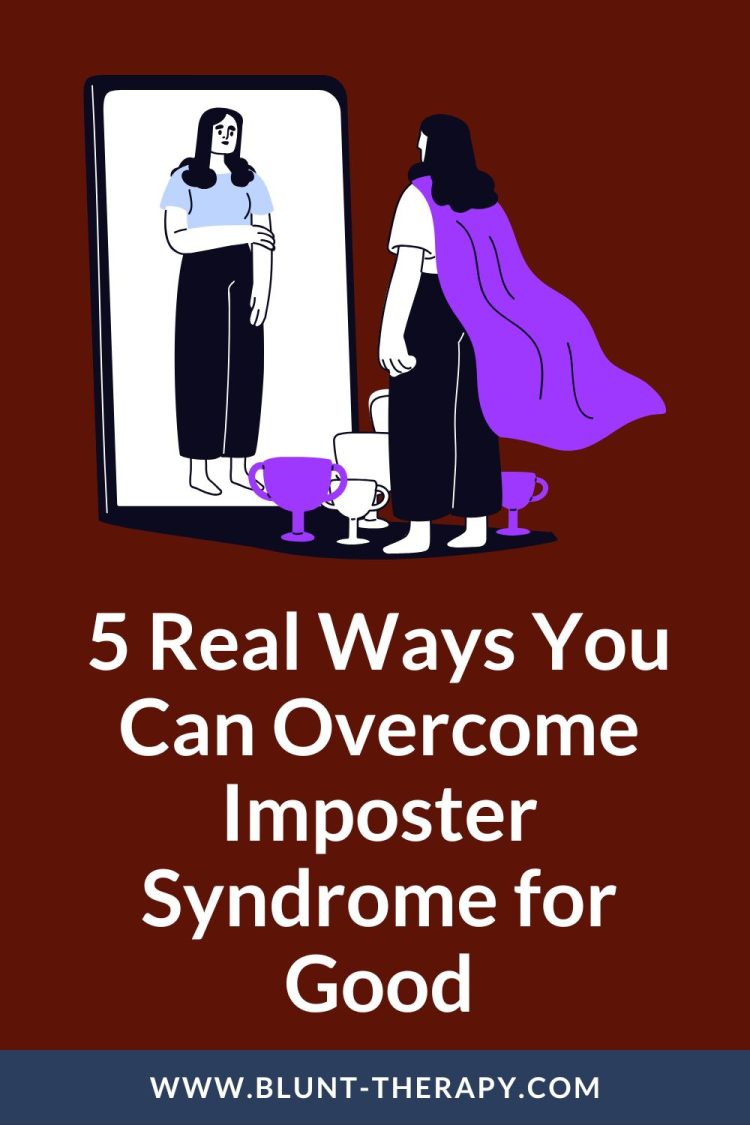Table of Contents
Affiliate link notice: As an affiliate of BetterHelp and other third-party vendors, We will receive compensation if you make a purchase using the links provided on this page. For more information, visit our disclosure page.
Last Updated on July 6, 2025 by Randy Withers
Imposter syndrome doesn’t always show up with flashing lights. Sometimes, it whispers. It hides behind achievements, disguises itself as humility, and thrives in people who seem—on the outside—to have it all together.
You might dismiss your success as luck, timing, or just good connections. You fear being “found out,” even if no one’s accusing you of anything. You downplay your wins, compare yourself to others, and live in quiet dread that someone will eventually discover you’re not who they think you are.
This experience is incredibly common—and not a reflection of your talent, intelligence, or worth. If you’ve ever questioned whether you belong in the room, despite clear evidence that you do, you’re not alone. In this article, we’ll explore what imposter syndrome is, how it shows up, and—most importantly—how to overcome imposter syndrome without relying on hollow affirmations or forced positivity.

What Is Imposter Syndrome, Really?
Coined in the late 1970s by psychologists Pauline Clance and Suzanne Imes, imposter syndrome refers to the persistent belief that your success isn’t real, earned, or deserved. Even when there’s clear evidence of achievement, you may still believe it’s only a matter of time before you’re “found out.”
While imposter syndrome isn’t a diagnosable mental health condition, it’s deeply intertwined with anxiety, perfectionism, and burnout. It’s also incredibly deceptive—it convinces high-performing individuals that they’re only successful because of external factors, not because of their skill or effort.
Imposter syndrome often shows up in transitions: starting a new job, returning to school, entering a competitive field, or stepping into leadership. It’s especially prevalent among people from underrepresented or marginalized groups who may feel added pressure to prove their worth in environments that historically excluded them (Cokley et al., 2017).
Signs You Might Be Struggling With It
Imposter syndrome wears many faces. Sometimes it looks like overachievement. Sometimes it feels like paralysis. And sometimes, it masquerades as modesty while quietly dismantling your confidence.
It doesn’t always scream “I’m an imposter.” Instead, it sounds like:
- “They’re going to figure out I don’t actually know what I’m doing.”
- “I was just in the right place at the right time.”
- “I don’t belong here—people are just being polite.”
- “If I were really good, I wouldn’t feel this anxious.”
These thoughts can lead to chronic stress, underperformance, or emotional exhaustion. You might procrastinate not because you’re lazy, but because the pressure to be perfect makes starting unbearable. Or you might overwork yourself to “earn” your spot—only to feel empty when praise arrives.
When left unchecked, these patterns become self-fulfilling. You start to avoid new opportunities, disconnect from your own success, and constantly raise the bar so you never feel safe enough to stop striving.
But the inner critic doesn’t get quieter by working harder. It softens when you help untangle those thought loops, challenge their validity, and replace them with grounded, compassionate truth.
Where Does Imposter Syndrome Come From?
Imposter syndrome isn’t just about insecurity. It’s the result of repeated exposure to environments, messages, and expectations that teach you your worth is conditional.
Some common contributors include:
- Family systems that equate love with performance or appearance
- Early academic or social pressure to be exceptional
- Marginalization, where cultural or systemic barriers leave you feeling like an outsider
- Media and societal narratives that glorify effortlessness while ignoring struggle
- Loneliness in success—being the only person like you in the room can reinforce a sense of alienation
Over time, these influences shape a mindset where your success feels fragile, undeserved, or not truly yours. Even when you’ve earned your spot, your brain doesn’t update the narrative. Instead, it repeats the old story.
In short, it’s a habit—a well-rehearsed mental loop that must be interrupted before it becomes your default identity.
Real People, Real Doubt: You’re in Good Company
Imposter syndrome doesn’t discriminate by title or talent. In fact, it tends to strike those who are doing big, brave things.
Michelle Obama has shared that even after becoming First Lady, she sometimes wondered, “Am I good enough?” Tom Hanks has spoken about questioning his success. Maya Angelou, despite writing dozens of books, once said she worried she’d be exposed as a fraud.
If these cultural icons feel it, there’s no shame in it. Your doubt doesn’t disqualify you—it humanizes you. It reminds us that confidence and vulnerability aren’t opposites; they often live side by side.
How to Overcome Imposter Syndrome
These five strategies form the backbone of this article—and now, each has been expanded to offer greater clarity, practical steps, and emotional weight.
1. Name It to Tame It
Recognizing imposter syndrome for what it is—a distorted thought pattern—is the first step. The moment you label the feeling, you create a gap between the thought and the truth.
Start tracking your “imposter moments” in a journal. What triggered them? What did you tell yourself? What’s the evidence that thought is real?
By shining light on the pattern, you reduce its power.
2. Keep Track of the Wins
Documenting your successes helps combat the negativity bias that filters out anything positive. Create a “wins file” where you keep thank-you notes, client feedback, project outcomes, or milestones.
Return to it often—not just during low moments, but as a reminder that your progress is real, even when your brain tries to deny it.
3. Redefine What Success Means to You
Success isn’t perfection. It isn’t always a raise, an award, or external validation. Sometimes success is showing up to a difficult meeting, saying no to burnout, or resting without guilt.
Ask yourself: Whose definition of success are you chasing? What does a meaningful, aligned version of success look like for you?
Confidence is built by living in that alignment—not someone else’s checklist.
4. Talk Back to Your Inner Critic
When your inner dialogue turns harsh, pause and challenge it.
Would you say those words to someone you love? If not, why are you saying them to yourself?
Reframe your self-talk: “I’m not ready” becomes “I’m learning.” “I don’t belong” becomes “It’s normal to feel nervous in new spaces.” Changing your language changes your mindset over time.
5. Seek Support
Imposter syndrome thrives in isolation. Talk to a therapist, a trusted friend, or a mentor who understands your world.
If you’re not ready to speak aloud, start by writing. Journal about what success means to you, or the moments that sparked doubt. Reflecting in writing gives your thoughts shape—and gives you room to shift perspective.
If therapy is available to you, it can provide a structured way to unpack the origins of imposter syndrome and build the self-worth to counter it. It’s not just about feeling better. It’s about reclaiming your power.
How to Overcome Imposter Syndrome
These five strategies form the backbone of this article—and now, each has been expanded to offer greater clarity, practical steps, and emotional weight.
1. Name It to Tame It
Recognizing imposter syndrome for what it is—a distorted thought pattern—is the first step. The moment you label the feeling, you create a gap between the thought and the truth.
Start tracking your “imposter moments” in a journal. What triggered them? What did you tell yourself? What’s the evidence that thought is real?
By shining light on the pattern, you reduce its power.
2. Keep Track of the Wins
Documenting your successes helps combat the negativity bias that filters out anything positive. Create a “wins file” where you keep thank-you notes, client feedback, project outcomes, or milestones.
Return to it often—not just during low moments, but as a reminder that your progress is real, even when your brain tries to deny it.
3. Redefine What Success Means to You
Success isn’t perfection. It isn’t always a raise, an award, or external validation. Sometimes success is showing up to a difficult meeting, saying no to burnout, or resting without guilt.
Ask yourself: Whose definition of success are you chasing? What does a meaningful, aligned version of success look like for you?
Confidence is built by living in that alignment—not someone else’s checklist.
4. Talk Back to Your Inner Critic
When your inner dialogue turns harsh, pause and challenge it.
Would you say those words to someone you love? If not, why are you saying them to yourself?
Reframe your self-talk: “I’m not ready” becomes “I’m learning.” “I don’t belong” becomes “It’s normal to feel nervous in new spaces.” Changing your language changes your mindset over time.
5. Seek Support
Imposter syndrome thrives in isolation. Talk to a therapist, a trusted friend, or a mentor who understands your world.
If you’re not ready to speak aloud, start by writing. Journal about what success means to you, or the moments that sparked doubt. Reflecting in writing gives your thoughts shape—and gives you room to shift perspective.
If therapy is available to you, it can provide a structured way to unpack the origins of imposter syndrome and build the self-worth to counter it. It’s not just about feeling better. It’s about reclaiming your power.
Final Thoughts
Imposter syndrome isn’t a flaw—it’s a learned response to high expectations, perfectionism, or environments where you’ve had to prove yourself too often. That inner voice of doubt? It developed for a reason. But it no longer has to lead.
The irony is, imposter thoughts often show up when we’re growing—taking risks, learning new skills, stepping into bigger roles. In that sense, they’re not signs of failure; they’re signs that you’re expanding.
To overcome imposter syndrome doesn’t mean eliminating doubt altogether. It means refusing to let it dictate your choices. It means knowing your thoughts aren’t always facts—and that you don’t need to feel confident to act with courage.
Confidence isn’t something you wait for. It’s something you build, through action, presence, and self-respect.
You belong—not when you’re perfect, but when you show up anyway. And you’ve already been doing that.
FAQ: Overcoming Imposter Syndrome
1. What causes imposter syndrome?
Imposter syndrome can stem from perfectionistic upbringing, high-achieving environments, cultural pressure, or experiences of exclusion or bias. It often takes root in early life and becomes reinforced in adulthood through new roles, expectations, or environments where comparison is constant.
2. Is imposter syndrome the same as low self-esteem?
Not exactly. People with imposter syndrome often appear confident and accomplished on the outside. It’s more about a disconnect between your actual achievements and your internal sense of competence. You may believe you’re fooling others, even while outwardly succeeding.
3. Can imposter syndrome affect mental health?
Yes. Chronic self-doubt can fuel anxiety, depression, and burnout. It can lead to overworking, isolation, and an inability to accept rest or praise. Left unaddressed, it erodes confidence and increases emotional exhaustion over time.
4. Can therapy help me overcome imposter syndrome?
Absolutely. Therapy can help you identify the root causes of your self-doubt, challenge distorted thinking, and build more realistic and self-compassionate beliefs. Cognitive-behavioral therapy (CBT) is especially effective, as is work around core beliefs and identity.
5. Will imposter syndrome ever go away completely?
It can fade significantly, especially with intentional practice, mindset work, and support—but occasional self-doubt is part of being human. The goal isn’t to eliminate the voice entirely, but to learn not to obey it. Over time, the voice gets quieter—and your confidence gets louder.







